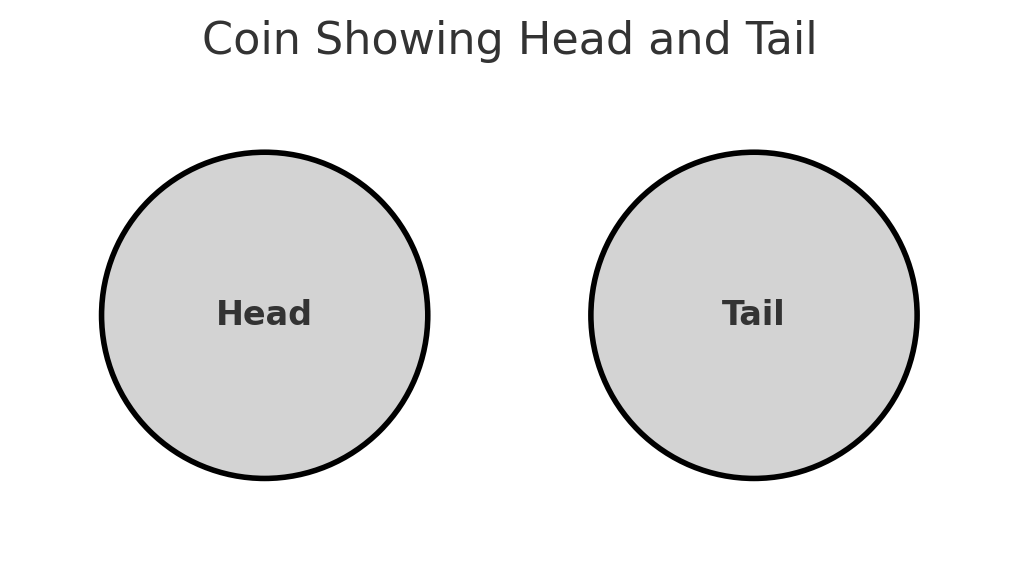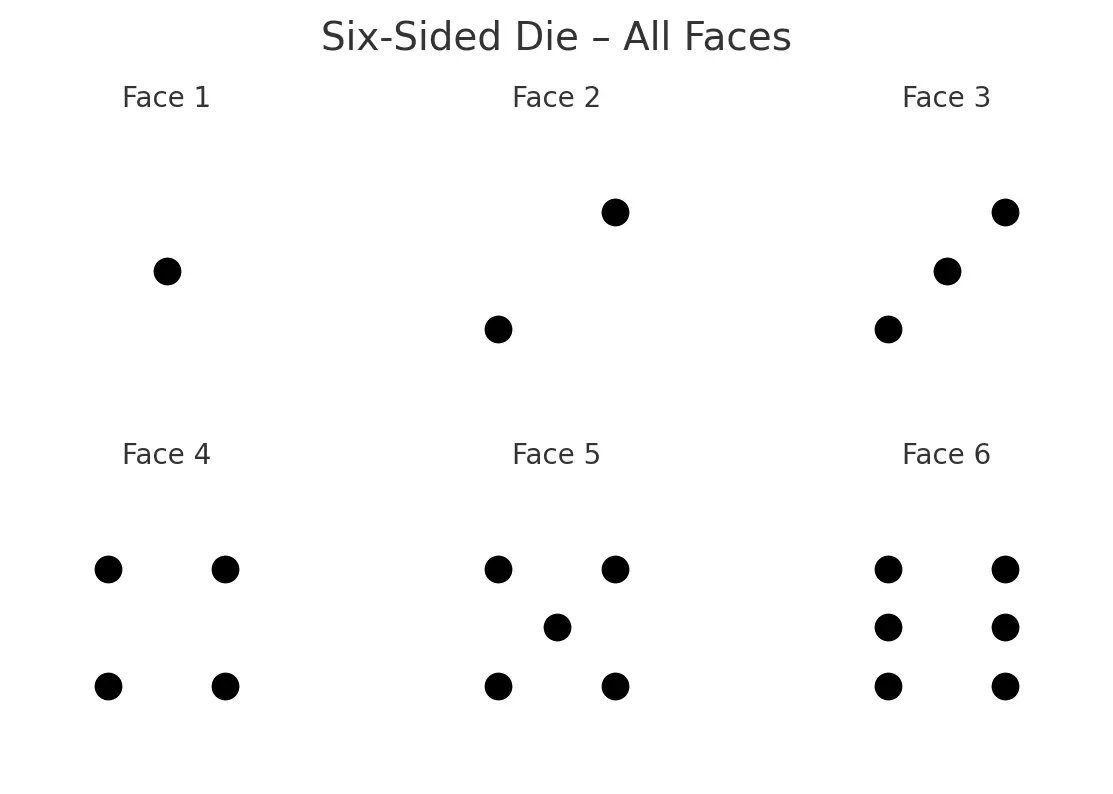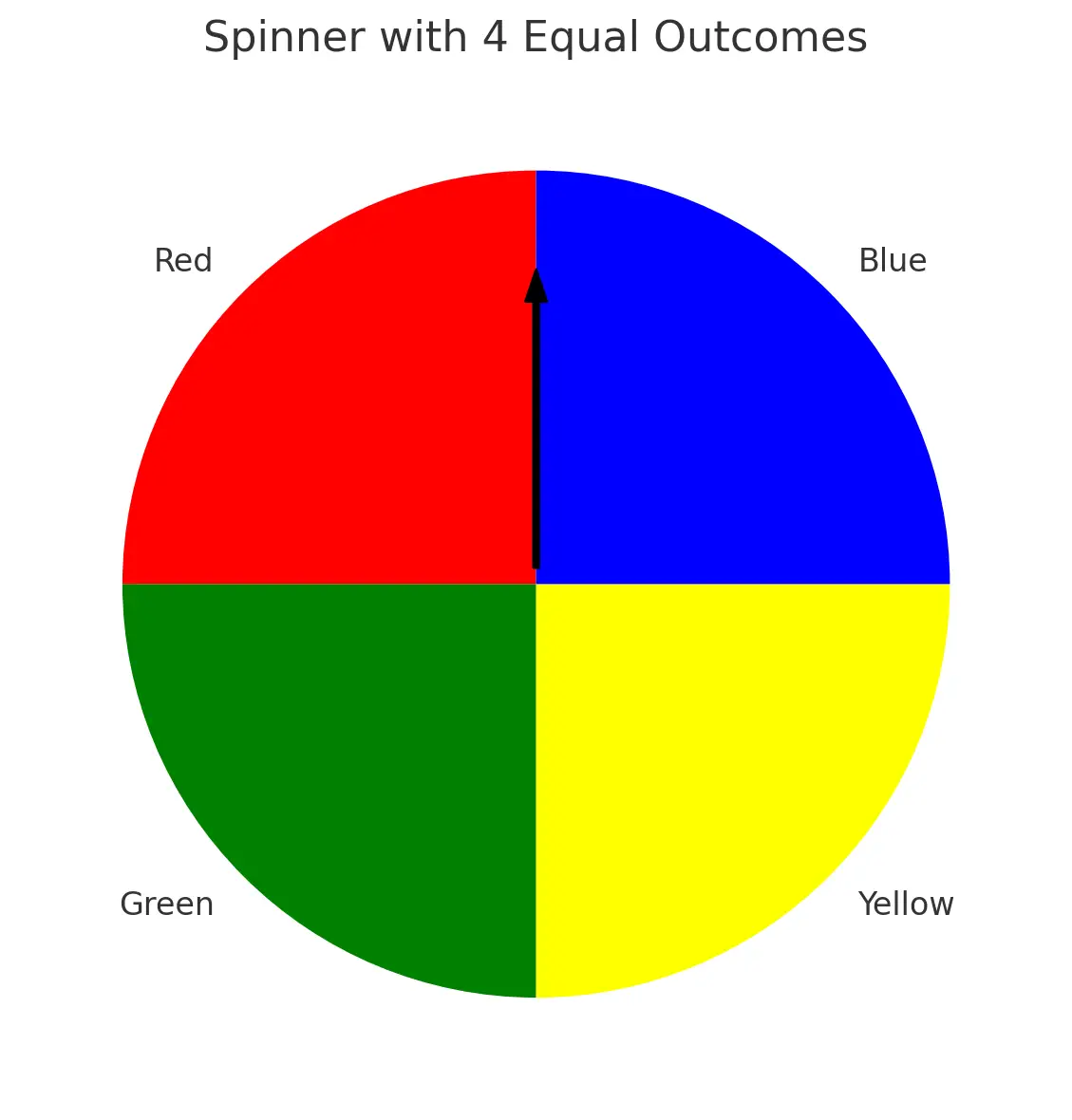Shopping cart
Hello There!
Welcome to GattPrep, your Guide for Life and Learning
Have you ever tossed a coin and guessed whether it would land on heads or tails?
That’s probability — the mathematics of chance!
In this lesson, you’ll learn how to measure the likelihood of events, calculate simple probabilities, and describe events as certain, likely, or impossible.
From games and sports to weather forecasts, probability helps us make better predictions every day!
Probability is the measure of how likely an event is to happen.
It is a number between 0 and 1.

When all outcomes are equally likely:
Example: Probability of getting a Head when tossing a coin:
Possible outcomes: Head (H) or Tail (T)

Possible outcomes: 1, 2, 3, 4, 5, 6

If a spinner is divided equally into Red, Green, Yellow, and Blue,
each outcome has a 1 in 4 chance.

We often describe probability using words, especially when we don’t know the exact number.
| Word | Meaning |
|---|---|
| Impossible | Will never happen (P = 0) |
| Unlikely | May happen, but not often |
| Even Chance | Just as likely as not (P = 0.5) |
| Likely | Will probably happen |
| Certain | Will definitely happen (P = 1) |
Question: What is the probability of rolling an even number (2, 4, or 6) on a fair die?
Solution:
Question: A bag contains 5 red and 3 blue balls. What is the probability of picking a red ball?
Part A: Short Answer
Part B: True or False?
Part C: Match the Event to the Word
| Event | Word |
|---|---|
| Getting heads from a coin | Even chance |
| Getting 10 when rolling a die | Impossible |
| Getting rain during rainy season | Likely |
| Sun rising tomorrow | Certain |
Part A:
Part B:
Part C:
In this lesson, you learned what probability means, how to calculate it using a simple formula, and how to describe the likelihood of events using both numbers and words.
We explored common examples like coins, dice, spinners, and real-life situations.
Think of a simple event in your daily life — like picking a color from your pencil case or spinning a bottle.
Can you list all the possible outcomes?
Can you describe the chance of each outcome using a fraction?